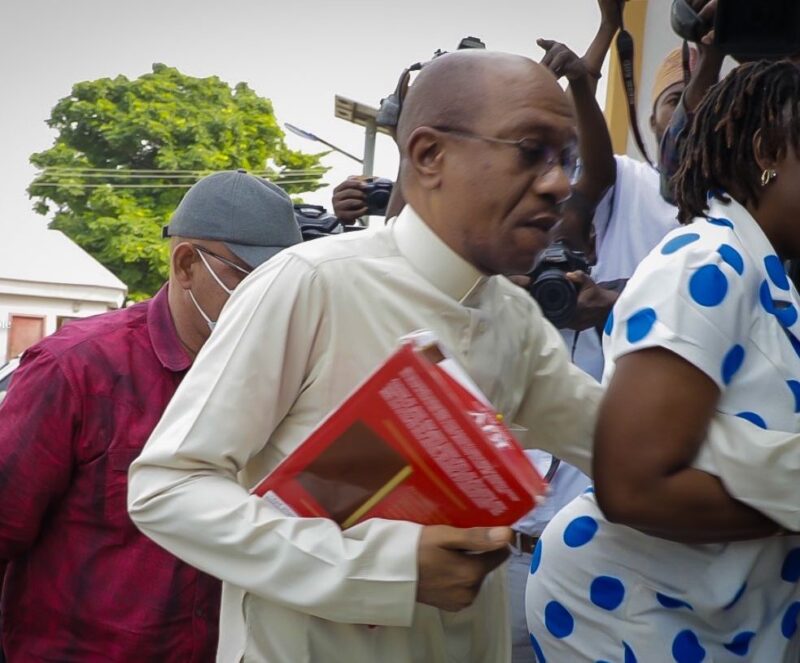Former Central Bank Governor Godwin Emefiele has approached the Court of Appeal in Abuja, challenging a decision that granted the federal government complete ownership of a large housing estate consisting of 753 units in the Lokogoma area of Abuja.
The Economic and Financial Crimes Commission (EFCC) had earlier secured an order from the Federal High Court to seize the estate, which was originally linked to a different, unnamed former public official. However, Emefiele claims he holds both legal and equitable interests in the estate and insists he was not properly informed about the forfeiture case.
Represented by his lawyer, A.M. Kotoye, Emefiele filed an appeal on April 30, 2025. He is asking the appellate court to reverse the lower court’s ruling delivered on April 28, 2025, and to nullify both the interim and final forfeiture orders made on November 1 and December 2, 2024. In his submission, he argues that the trial court dismissed his case without giving full attention to the facts and documents he presented.
Emefiele claims he only learned about the forfeiture after it had already been finalized. He told the court that the EFCC had placed a public notice in a section of a newspaper that was hard to find, making it unlikely he would have seen it. At the same time, he said he was dealing with three different criminal cases in Abuja and Lagos, which distracted him from other legal matters.
He accused the EFCC of hiding the forfeiture case from him, even though the commission was actively pursuing other legal actions against him. He told the court, “I was unaware of the forfeiture.”
The trial court had earlier dismissed this line of defense. The judge said the EFCC had followed legal procedures and that the newspaper publication was adequate. The judge stated the notice “could not reasonably be described as hidden.”
Still, Emefiele insists that the lower court got it wrong. In his appeal, he describes the ruling as unfair and based on weak evidence. He says the decision was built on “hearsay, suspicion, and no proper evidence,” and called the entire process “a miscarriage of justice.”
“The failure of the trial judge to properly evaluate the affidavit and documents before him is perverse and has caused a miscarriage of justice,” Emefiele added. He also claimed that the orders violated the 1999 Constitution and should be considered invalid.
Emefiele’s legal team has also reached out to the Minister of Housing, asking the federal government to delay any sale of the housing units until the appeal is decided. The government had previously said the estate would be sold to low- and middle-income Nigerians.
In a letter to the minister, Emefiele’s lawyers wrote, “We are aware that the properties may soon be sold to the public. We have already served the EFCC with a notice of appeal and an injunction.”










